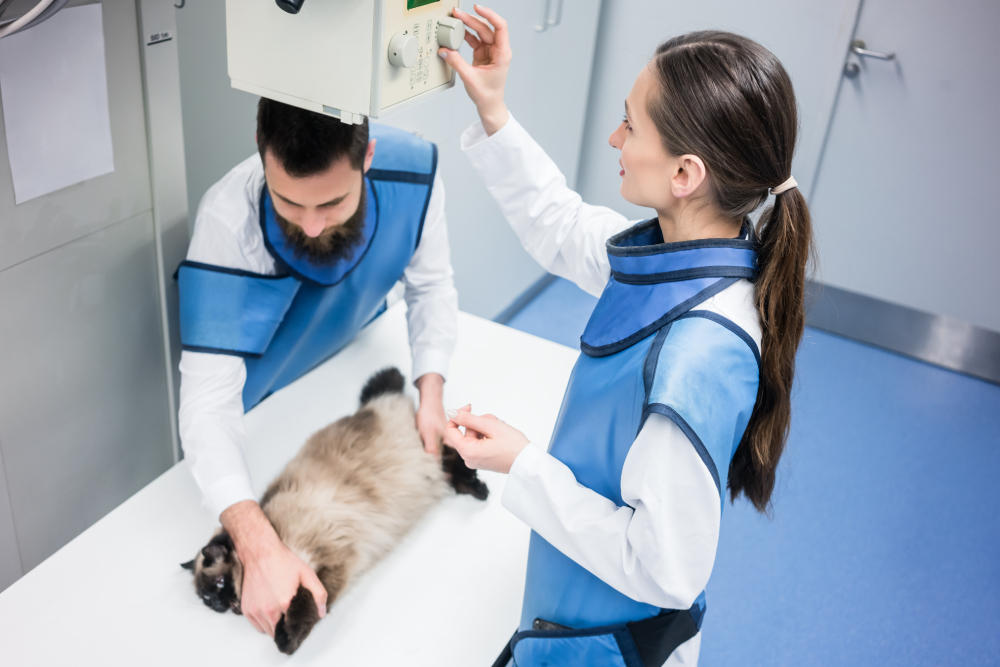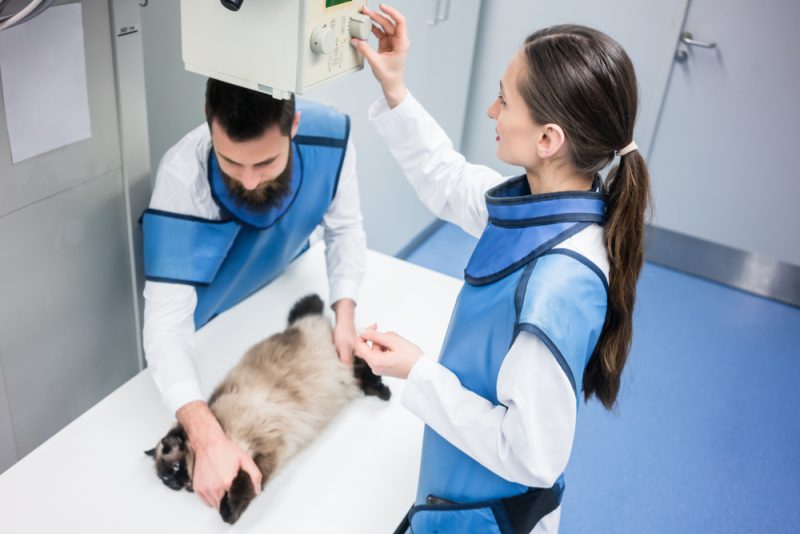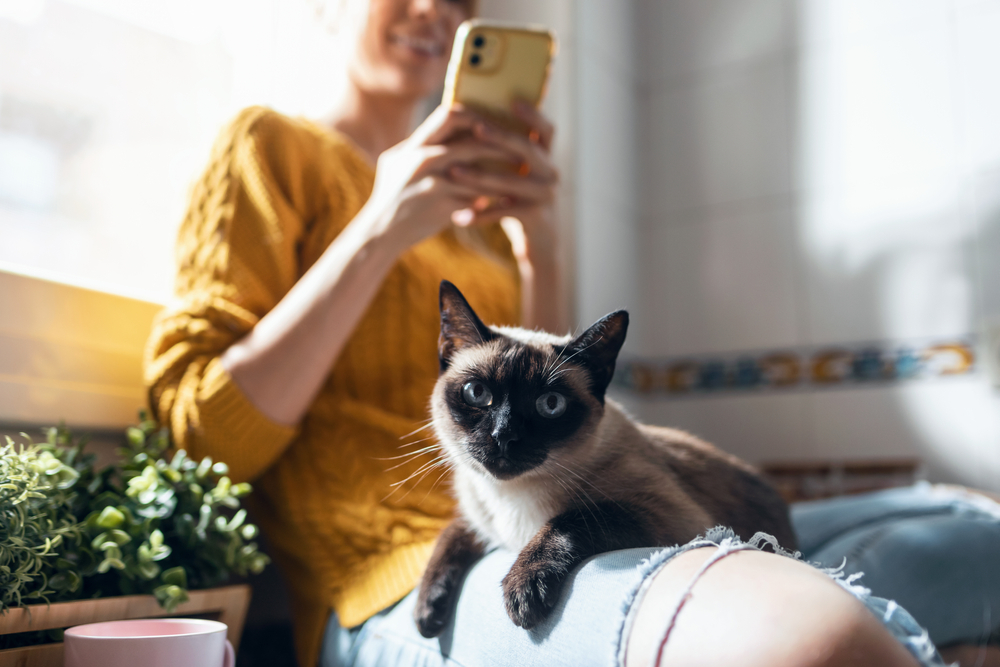National Take Your Cat to the Vet Day occurs on August 22nd. This national day advertises the importance of taking your cat to the vet. Sadly, many cat owners do not take their cats to annual vet visits and misinterpret the signs of their cats getting sick. In fact, only about 44% of cat owners take their felines to the vet annually1.
Therefore, increasing the number of cats who see the vet each year is important. Cats need vaccinations each year, and check-ups can help catch illnesses before they become serious, making them easier to treat and preventing complications.
How to Celebrate National Take Your Cat to the Vet Day
There are many ways to celebrate this national day, though there aren’t many larger celebrations.
- Schedule a check-up: If your cat hasn’t had their annual check-up, now is the time to schedule it. The odds of getting an appointment on this day are low, but that doesn’t mean you can’t schedule it for the next open day. Even if your cat seems healthy, regular vet check-ups are necessary to keep them that way.
- Write down any concerns: Before visiting the vet, it’s important to write down any concerns you have. Sometimes, it’s easy to forget the things you wanted to talk about while at the vet, so having a written record is very helpful.
- Get your cat vaccinated: One of the major benefits of an annual vet visit is keeping your cat up-to-date on vaccinations. Vaccines help prevent tons of diseases, lowering your vet bills over the years. Plus, vaccines are relatively inexpensive compared to treating the diseases they prevent. They may also be legally required in your area.
- Learn about feline health: If you don’t know much about cat health, now is a great day to learn. Use this day as a reminder to learn about the common signs of cat illness, feline nutrition, and exercise requirements.
Why Are Vet Visits for Cats Important?
Just like humans, cats can look and act completely fine—but with underlying illnesses just waiting to show. Blood markers and vital signs can all show that these issues are forming under the surface. Often, when illnesses are caught early, they are much easier to treat. Therefore, vet visits can potentially save your cat’s life and lower your vet bills.
Furthermore, cats need regular boosters for vaccines. Each vaccine needs a slightly different schedule, so you’ll need to work with your vet to ensure your cat is updated on time. Most cat vaccinations only work for a few years. So, if you don’t get your cat boosters, they will be able to get sick once more.
Kittens need more vet visits than older cats, as they need more vaccinations and supervision. After all, they’re growing, and this is the period when congenital issues may form.
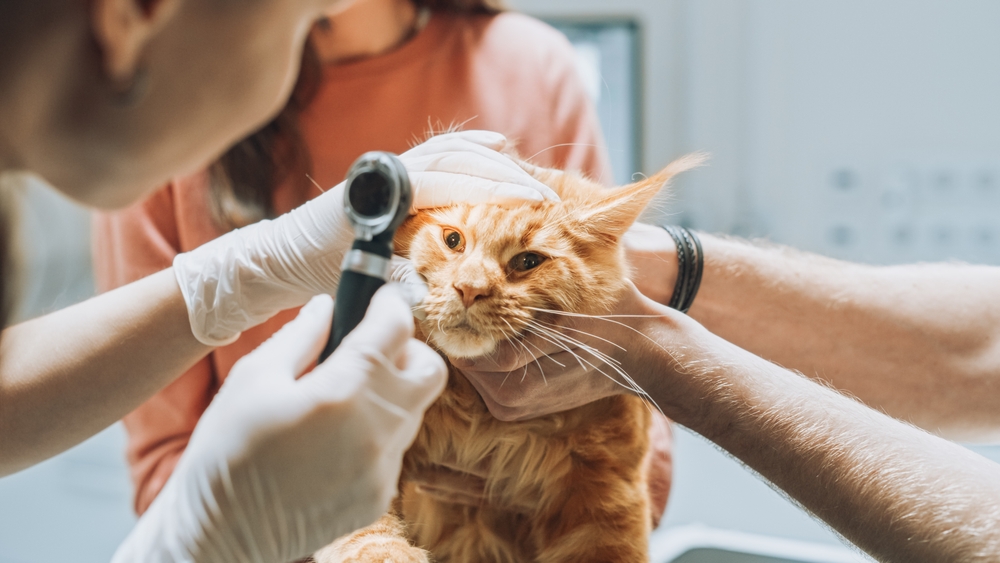
What Routine Tests and Procedures Are Done at Feline Check-ups?
What is done at a feline check-up varies from place to place and cat to cat. Younger, mature cats may not get any routine tests beyond a physical examination. The odds of these cats developing health issues are low. However, older cats may get routine bloodwork and a more careful exam.
Just like in humans, senior cats are much more likely to develop health issues, so supervision becomes much more careful at this stage. Some vets even recommend more regular check-ups for older cats, especially if they’re developing chronic issues.
Most cats will also be weighed. This simple process helps your vet catch obesity before it becomes very serious. Sadly, many cats are obese in the United States today, and this problem directly causes a range of health issues. Therefore, keeping your cat at a healthy weight is vital. Your vet can help you determine if your cat’s current diet is working for them or not.
Some vets may perform fecal exams, especially if your cat spends time outside. This exam tests for internal parasites, which often don’t produce any signs of illness. However, if left unchecked, parasites can become more serious. Regular testing for parasites is recommended for outdoor cats, as the dirt and potential prey animals your cat is eating may cause an infection.
Vaccinations are often given at these check-ups, too. Many cats need updates for rabies, distemper, and other illnesses every one to three years. The exact vaccine given does affect how long it lasts. Your feline may also need extra vaccines depending on their lifestyle and where you live.
If you have mosquitoes in your area, heartworm testing is also important. Mosquitoes transmit heartworms, which can cause death if left untreated.
What Are Signs That Your Cat Needs a Vet Visit?
Outside of normal annual exams, your cat also needs to go to the vet when it is ill. Sadly, it can be hard to tell when a cat is ill, as they naturally cover up their illnesses. This behavior is instinctual, as cats in the wild had to cover up their illnesses to avoid predation.
In our homes, they don’t have to worry about this. However, this instinct is still prevalent in most cases. You may not notice any serious signs of illness until the cat is very sick.
Luckily, there are a few signs of illness that cats aren’t as good at hiding.
- Lethargy
- Decreased appetite
- Increased hiding
- Less affectionate
- Diarrhea
- Changes in litter box habits
- Excessive grooming
- Coughing
- Swollen abdomen
If you notice these signs, it’s important to make a vet appointment right away. Once again, despite these signs not seeming very serious, they can indicate a serious illness.
For instance, if your cat starts improperly urinating, you may assume they’re just being naughty. However, this is actually one of the biggest signs of a urinary tract infection, which is very common in cats. Left untreated, this infection can move onto the bladder and even cause organ failure. Cats with UTIs regularly show no other signs of illness.
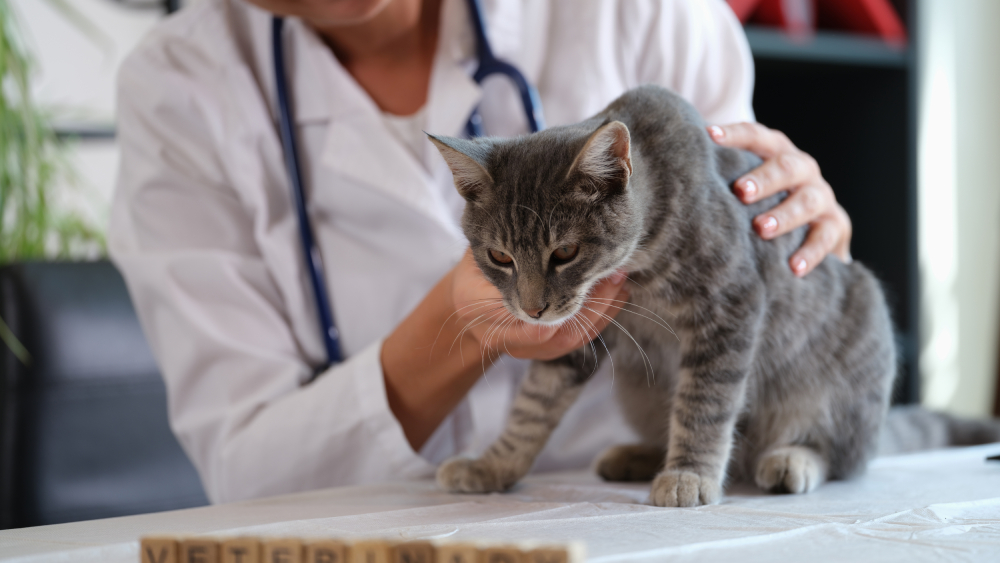
How to Make a Vet Visit Less Stressful
Vet visits can be relatively stressful for your feline. Luckily, there are several things you can do to reduce the amount of stress your cat endures.
- Use a cat-friendly carrier: Purchase a carrier that is made for cats. Look for options that provide good ventilation and access.
- Keep your cat comfortable: Use blankets and toys from home to make your cat feel a bit more comfortable in the carrier. Letting your cat get used to the carrier beforehand is also a great option. Use treats and catnip to make the carrier a happy place to be.
- Consider medication: For cats that are very anxious, you may need to use anxiety-reducing medications to make your cat’s visit possible. Your vet may recommend these if your cat is impossible to handle at their annual check-up.
- Stay calm: Cats are very good at picking up on our discomfort. If you’re stressed, your cat will be, too.
Final Thoughts
Vet visits are absolutely essential for all cats, and this national day reminds us to make those important annual appointments. With regular check-ups, you help keep your cat healthy by catching signs of illnesses early and keeping them updated on their vaccinations. Vet visits can be stressful, but they’re essential for your cat’s overall health.
See Also:
- How Often Should You Take Your Cat to the Vet? What Vets Recommend
- Vet Nurse Day: Everything You Need to Know
Featured Image Credit: Kzenon, Shutterstock

